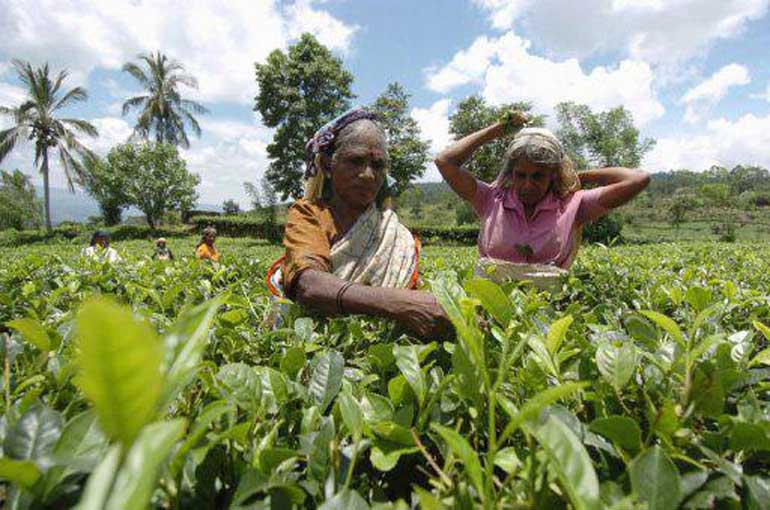Monday Feb 23, 2026
Monday Feb 23, 2026
Thursday, 19 November 2015 00:00 - - {{hitsCtrl.values.hits}}

Depressed prices and high wages will continue to weaken the credit profiles of Sri Lanka’s listed tea plantation companies (those that derive more than 50% of their revenue from tea), Fitch Ratings says.
The combined leverage, calculated as net debt/EBITDA, of all listed Sri Lankan tea plantation companies has risen to 9.9x at end September 2015 from 2.4x in 2013 as low prices and cost increases have significantly impaired the profitability and cash flow generation of the companies.
Fitch expects sector leverage to remain at high levels in the long term because of regular wage increases and low productivity compared with other leading tea exporting countries.
The average price at the September 2015 Colombo tea auction where all plantation companies sell more than 90% of their production fell to Rs. 370/kg, the lowest price since February 2012. This was largely due to lower demand from Sri Lanka’s key customers, including Turkey, Russia and the Middle East.
At the same time, labour costs, which form about 70% of tea plantation companies’ production costs, have risen 25%30% in the last few years. As a result, the average EBITDA margin of listed tea companies has narrowed by more than 10 pp between 2013 and 1H15, with most of them posting operating losses so far in 2015.
The higher wages stem from the collective agreements between trade unions and plantation companies, which call for wage increases every two years. These increases have averaged 20% in the recent rounds, and they are not linked to productivity. Each time the wage increases are enforced, sector margins narrow a cycle that Fitch believes has become fixed in the cost structure of the sector.
Ongoing negotiations for the 2015 wage increase are currently at a deadlock, with trade unions demanding a 60% increase while the companies are seeking a deferral till next year or a maximum increase of 10% given the low selling prices and their struggle to break even. Current auction prices are hovering around Rs. 400/kg, which remain well below the average production cost of Rs. 450/kg, and any wage increase would undermine the profitability of the tea companies.
The Sri Lankan Government in October 2015 allocated Rs. 1 b to purchase tea at the Colombo auction to drive prices to Rs. 450/kg. The last time the Government intervened to prop up tea prices was in 2008. Fitch believes this measure, which has yet to be implemented, will be detrimental to the sector as it will make Sri Lankan tea less competitive in a global market that is oversupplied.